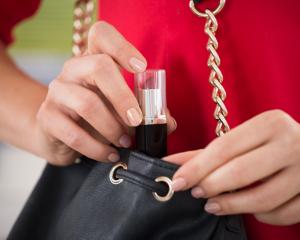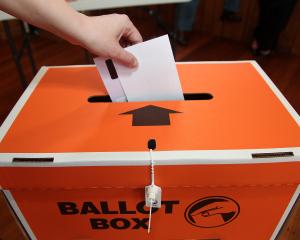The decision followed years of often contentious discussion, mostly behind closed doors, about the storage, consent and use of the cards, known as Guthrie cards.
Discussion of the storage question explored whether the cards from the national newborn metabolic screening programme should be stored for a certain or indefinite time, or destroyed.
Also hotly debated have been a variety of aspects of informed consent and whether samples collected for one purpose should be available for other uses, such as health research, and what protocols should surround that.
To date, requests for research using the residual blood spots (after the screening testing has taken place) have been turned down.
However, guidelines for practitioners involved with the programme published in February last year, point out that under the New Zealand code of health and disability consumers rights they could be used "without further consent from parent/guardians or individuals for research approved by an ethics committee".
Following last year's decision to retain the cards, the Government asked the Ministry of Health to develop operational protocols and governance arrangements for the cards, national screening unit antenatal and newborn screening manager Jane McEntee told the Otago Daily Times.
The ministry had consulted "stakeholder organisations" on these protocols for the $2.3 million-a-year newborn metabolic screening programme and would be reporting back to the Government by the end of this month, she said in an email response to questions.
The protocols would be released publicly once Cabinet endorsed them, she said.
The Otago Daily Times has complained to the Ombudsmen's office about the ministry turning down a request for the draft protocols.
The consumer organisations consulted on the draft were the Women's Health Action Trust, the Maternity Services Consumer Council, the Federation of Women's Health Councils Aotearoa and the Organisation for Rare Disorders.
Information on the national screening unit website does not contain any mention of the decision about indefinite storage or the fact the protocols are under consideration.
A recently produced guide for parents says the samples are either "securely stored or returned to you" and explains how to seek the return of cards, if that is the wish of parents.
Many people may be unaware that the blood spots, taken from the heels of recently born babies and now used to test for more than 20 rare metabolic disorders, have been stored since nationwide testing began in 1969.
Each year, about 45 babies are found, through the programme, to have one of the disorders.
While such disorders cannot be cured, the programme advises that early treatment with medication or a special diet can "help your baby stay well and prevent severe disability or even death".
Public consultation about the consent, storage and use of the cards took place in 2007 followed by focus group meetings.
A draft policy options document followed in 2008 and submissions on that obtained by the Otago Daily Times under the Official Information Act in 2009 showed, at that stage, there was considerable friction between some parties involved in the behind-the-scenes discussions on various issues.
The Maternity Services Consumer Council was one group which considered the existing "unconsented" collection should be destroyed "before its continued existence undermines public confidence" in the screening programme and other national screening programmes requiring the collection of body tissue.
It contended the only legal and acceptable use of the current collection was to test for metabolic disorders.
Women's Health Action said allowing the collection to devolve into a "proxy DNA bank without the support of the population and without proper legislative protections is grossly unethical".
That group expressed concern at the way information was presented at workshops describing the presentations of genetic investigators and population researchers as " manipulative and obscuring of the central issue: the very low public knowledge of, and the lack of consent for, the storage of blood spot cards and the potential uses of the cards for purposes other than the use for which they were collected."
Privacy commissioner Marie Shroff said the status quo, where a vast collection of blood samples was being held well beyond the expiry of the purpose for which it was collected, was not supportable.
One reason for her concern was that genetic technology was advancing at a dizzying pace, making testing for an ever-widening array of conditions and propensities faster, cheaper and more certain.
Any given blood sample was "effectively a rich store of information, not only about the subject, but also about his or her relatives".
Ms Shroff also considered legislation was needed to safeguard the collection and public trust in the integrity of the programme, particularly if a decision was made to retain the cards indefinitely.
If samples were able to be used for research without consent the programme should advise parents of this possibility.
She noted that focus group testing showed none of the participants could recall being fully informed about the storage of and potential uses for their children's bloodspot cards.
While she favoured written consent, University of Otago health researcher Prof Charlotte Paul was of the view the "best quality of consent was likely to be verbal rather than written". She worried that signed consent could lead to a reduction in uptake of the scheme.
"We know of no other blood test for which signed consent is required, so it would be a departure from usual clinical practice."
Others argued that other blood tests were not being stored in a national collection.
Prof Paul supported the use of the cards for research with very strict safeguards, with priority given to research of value to the public health and requiring ethics committee approval.
Head of Auckland University's medical genetics group Associate Prof Andrew Shelling supported more public awareness to "avoid public anxiety about medical research".
He considered ethically approved secondary use of identified Guthrie cards for clinical investigation was "a given, and it would be a travesty of justice" if they were not available for that purpose.
He also backed the use of identified cards for ethically approved medical research, and de-identified cards for ethically approved population research, following approval from a special guardianship group.
He considered broad consent for future unspecified use would be beneficial, gained at the time the sample was collected.
It would be appropriate at the time of collection to indicate some of the beneficial uses of Guthrie cards and the value of later research to individuals and families, he submitted.
The screening
Conditions screened for and numbers of babies it occurs in each year. -
• Cystic fibrosis (about 8).
• Congenital hypothyroidism (about 20).
• Amino acid disorders (about 5).
• Fatty acid oxidation disorders (about 5).
• Congenital adrenal hyperplasia (about 3).
• Biotinidase deficiency (about 1 baby every 3 years).
• Galactosaemia (about 1 every 2 years).
Newborn metabolic screening programme
• Collects blood samples on cards from the heels of newborns to test for metabolic disorders.
• Cards can be returned at the request of the parents or stored.
Stored blood spots can be used for.-
• Repeat testing if a baby has a disorder, but did not have a positive test.
• To help improve the screening programme accuracy.
• Research approved by an ethics committee.
• To investigate a death or illness in your family.
The blood will not be used for anything else without written consent from the parents or guardians or from another lawful authority such as ordered by a court.
Source: Your New Born Baby's Blood Test, National Screening Unit
(Note: The Ministry of Health and police have a memorandum of understanding which allows the cards to be used for identifying dead or missing victims of disasters or crimes under certain conditions.)











